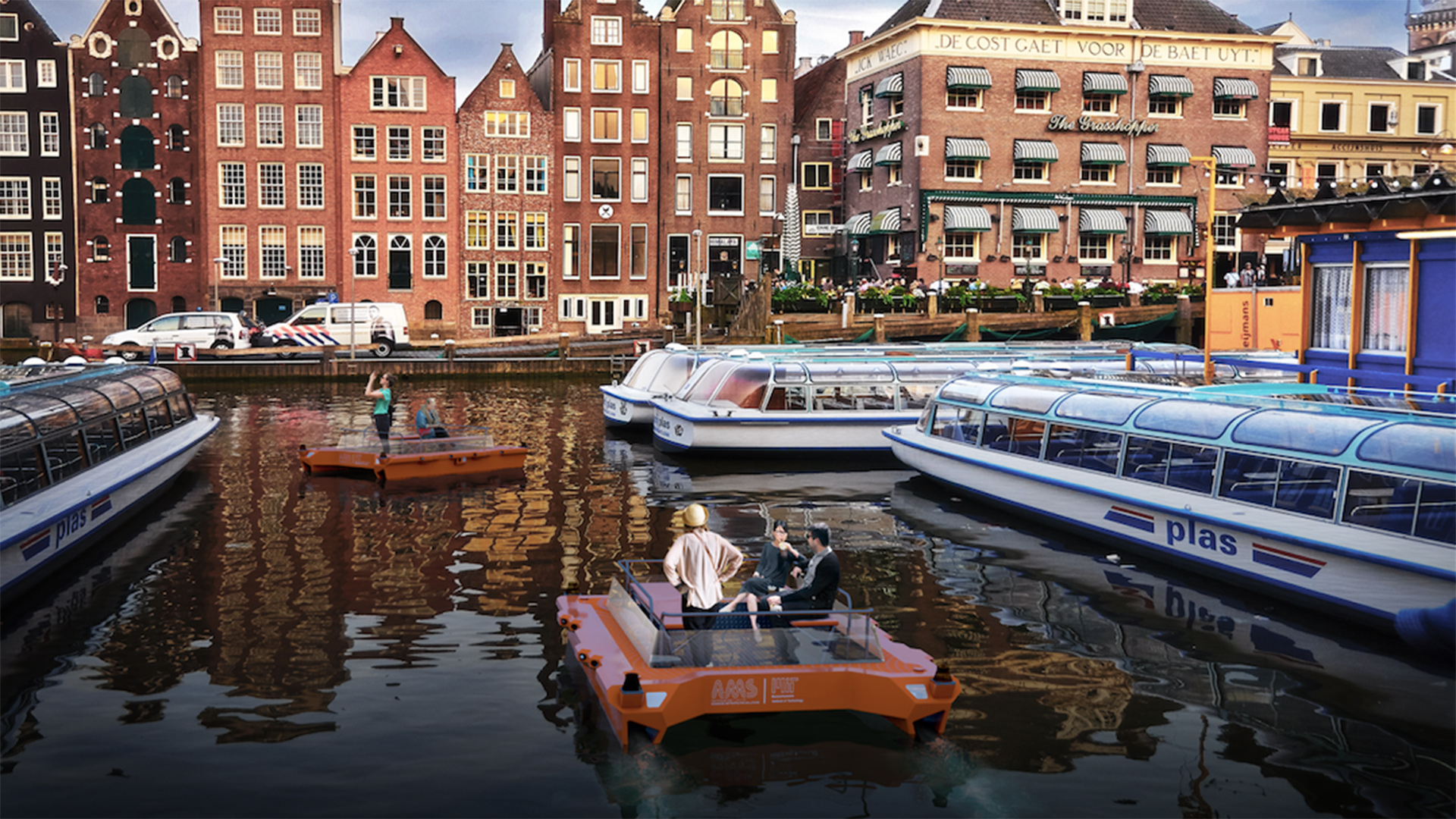

For regular readers of The Drive, the phrase “autonomous boats” likely brings to mind Skynet-esque nightmares like DARPA’s 120-foot robot drone ship. But the good folks of Amsterdam have a plan that could see that insidious mental image replaced—okay, supplemented—with a modern metropolis filled with self-driving boats that could reshape urban transportation almost as dramatically as autonomous cars might.
The “Roboat” project, as it’s delightfully named, is being developed by a joint team of researchers from the Amsterdam Institute for Advanced Metropolitan Solutions and the Massachusetts Institute of Technology. The five-year, €25 million (roughly $27.9 million) program will bring a fleet of robotic, self-piloted vessels to the canals of the Dutch capital starting in 2017.
The boat ‘bots won’t just be for shuttling people and cargo around, though. According to Carlo Ratti, one of the MIT professors working on the project (he was also part of the team behind the stoplight-eliminating traffic hack for self-driving cars), the boats could also be used to create “dynamic and temporary floating infrastructure like on-demand bridges and stages, that can be assembled or disassembled in a matter of hours.”

And no disrespect to the Titanic implied, but that’s just the tip of the iceberg for the Roboat project. According to the team, the autonomous watercraft could also be used in experiments to monitor Amsterdam’s roughly 60 miles of canals for disease or waste—for example, tracking down the roughly 12,000 bicycles that wind up in the waterways every year. (Seriously, Amsterdam, be more Amsterdam-y.)
While the initial Roboat concepts seen here resemble nothing so much as giant floating Legos, the team behind the project says they will be testing boats of various shapes and sizes over the course of the trial.

And while canal-strewn cities such as Amsterdam and Venice might seem the most obvious beneficiaries of fleets of multipurpose robot boats, the encroaching sea levels brought on by climate change mean more and more cities may find themselves in need of aquatic transportation solutions over the course of the next century. Should sea levels indeed wind up rising six feet by the year 2100, as some scientists are predicting, future employees at The Drive might well find themselves in need of self-driving boat taxis here in Brooklyn.
